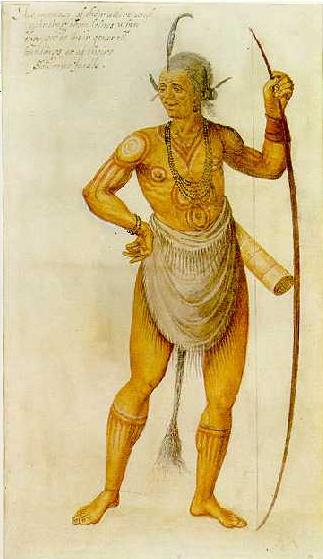Recently, I commented on the important new book The Dawn of Everything, by David Graeber and David Wengrow. Today I want to focus on the religious implications, and specifically for the history of England’s American colonies.
As I remarked, theories of early society have usually suggested that as ancient communities became more complex and populous, they developed state mechanisms of kings and priests, and these are essential to creating what we think of as civilization. The long term consequence might be domination and inequality, but that is the price we have to pay. To the contrary, Graeber and Wngrow argue that early human societies created much of what we characterize as “civilized” organization and development without forfeiting their early egalitarian structures. So, in the language of traditional social theory, was the primitive State of Nature as horrible as theorists like Hobbes and Locke described it, or was it, in many ways, a highly desirable set up? Was the absence of the notion of property and money actually a good thing? How far could human beings actually progress without state mechanisms and ideas of hierarchy and official power? Or were these all part of what John Dryden called “the base laws of servitude”? Historically, those debates frequently drew examples from “primitive” societies surviving into modern times, especially among the Indians of North America.
I traced the ideas of that State of Nature in seventeenth century England. But in fact, those debates had a huge impact on the ways in which early English settlers imagined the Indians they encountered, and particularly the religious aspects of the story. Protestant writers often used that familiar kind of analysis to frame Indian “savages” in a way that was literally diabolical.That contributed to the powerful shift I have described, by which “savage” evolved from being a non-judgmental descriptor of people who lived in the forests to our present meaning, of brutal and monstrous. As Cotton Mather wrote in his Magnalia Christi Americana (1702),
Though we know not when or how these Indians first became inhabitants of this mighty continent, yet we may guess that probably the Devil decoyed those miserable salvages hither in hopes that the gospel of the Lord Jesus Christ would never come here to destroy or disturb his absolute empire over them.
The Indians were under “that old usurping landlord of America, who is by the Wrath of God, the Prince of this world.” Mather’s use of the word “landlord” must recall Locke’s discussion of the lack of obvious visible property rights among those societies: yes, indeed, the Indians had a landlord, but not one of this world. And far from lacking a state mechanism, the Indians were actually the subjects of an absolute empire. As Mather noted, the New England Puritans “have to their sorrow seen Azazel dwelling and raging there in very tragical instances.” Jonathan Edwards believed that before the Christian settlement, North America was “wholly the possession of Satan.”
If this was indeed the State of Nature, it was a hideous and undesirable thing, condemned by God. In Virginia in 1720, Robert Beverly described an Indian idol that:
must needs make a strange representation, which those poor people are taught to worship with a devout ignorance. . . . In this state of Nature, one would think they should be as pure from superstition, and overdoing matters in religion, as they are in other things; but I find it is quite the contrary; for this simplicity gives the cunning priest a greater advantage over them, according to the Romish maxim, “Ignorance is the mother of devotion.”
Worse than savages, Indians were natural Catholics. Or rather, in that view, those lives spent in the State of Nature were nasty, brutish, short, servile, and (in short) Catholic.
To the contrary, The Dawn of Everything asserts that the critical intelligence of those same Native peoples often frustrated would-be Christian missionaries, as they saw their best arguments flounder in debate. In the authors’ view, the Natives owed those smarts to the democratic structures in which they participated on a daily basis. This is one of many places in which the book makes a substantial contribution to the history of religion, and specifically Christianity, although often the authors do not bring out those aspects quite as much as they might. The Dawn of Everything cries out to be the centerpiece of a conference or seminar on Christian history and mission.
I am not so rash as to try and summarize the very rich arguments of that book, which I will be contemplating and arguing with for a good while to come.














